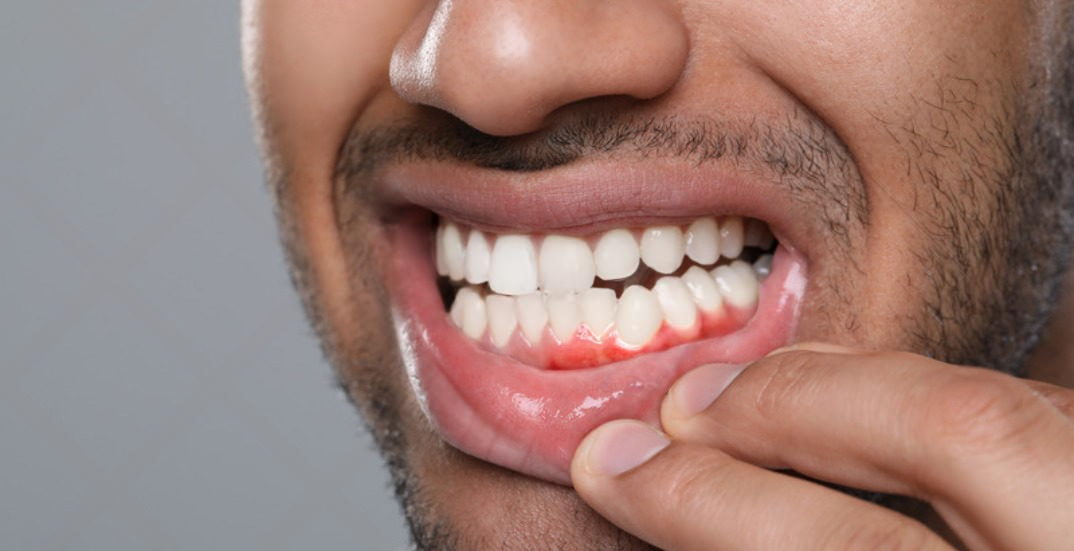Have you ever considered how your oral health affects your overall well-being? Many people see dental care as just a way to maintain a bright smile or avoid cavities, but the truth is that oral health is deeply connected to your entire body.
Your mouth is home to billions of bacteria—some good, some harmful. When oral hygiene is neglected, harmful bacteria can build up, leading to infections that may not only damage your teeth and gums but could also contribute to health issues elsewhere in your body. Studies suggest links between gum disease and conditions like diabetes, heart disease, and even difficulties during pregnancy.
But the good news is that by following simple oral care habits and seeing a dentist regularly, you can prevent common dental problems and support your overall health. In this article, we’ll explore the connection between oral health and general well-being, common oral issues, and steps you can take to maintain a healthy mouth and a healthier you.
The Connection Between Oral Health and Overall Health
Your mouth isn’t separate from the rest of your body—it’s a part of it. What happens inside your mouth can have ripple effects on your overall health.
Gum Disease and Heart Health
Research suggests that gum disease (periodontitis) may be associated with an increased risk of heart disease. While scientists are still studying the exact relationship, one theory is that inflammation from gum infections could contribute to inflammation in the blood vessels, possibly leading to heart problems like clogged arteries or even stroke.
Diabetes and Oral Health
Due to high blood sugar levels, people having diabetes are more likely to develop gum disease. On the flip side, untreated gum infections may make it harder to control blood sugar levels, creating a link between diabetes and oral health. Managing one can help manage the other.
Oral Bacteria and Respiratory Diseases
Harmful bacteria in the mouth can be inhaled into the lungs, potentially contributing to respiratory infections, pneumonia, or worsening existing lung conditions.
Oral Health and Pregnancy Complications
Pregnant women with severe gum disease may have higher chances of preterm birth or low birth weight babies. Good oral care during pregnancy isn’t just crucial for the mother—it can also impact the baby’s health.
“The mouth-body connection is well-documented in medical research. Keeping your gums healthy may not just protect your teeth but could also reduce the risk of serious health conditions.”
Common Oral Health Issues and Their Impacts
Ignoring oral health can lead to a range of problems, from mild discomfort to serious complications.
Cavities (Tooth Decay)
Cavities form when bacteria in the mouth feed on sugars from food, producing acids that erode tooth enamel. If untreated, cavities can lead to:
- Tooth pain and sensitivity
- Infections that may require root canal treatment
- Tooth loss, affecting eating and speech
Gum Disease (Gingivitis & Periodontitis)
Gum disease begins with mild inflammation (gingivitis) but can progress into severe infections (periodontitis), which may damage the bone that supports your teeth. Signs include:
- Red, swollen, or bleeding gums
- Bad breath that doesn’t go away
- Loose or shifting teeth in advanced cases
Oral Infections & Bad Breath (Halitosis)
Persistent bad breath could be a sign of an underlying issue, such as untreated cavities, gum infections, or bacteria buildup on the tongue.

Oral Cancer
Oral cancer can affect the tongue, cheeks, gums, or throat. Early detection is crucial, which is why regular dental check-ups are essential. Risk factors include:
- Tobacco and alcohol use
- HPV (Human Papillomavirus) infection
- Poor oral hygiene
“Bleeding gums shouldn’t be ignored. They could be a warning sign of gum disease, which—if untreated—might contribute to broader health issues.”
Preventive Measures for Maintaining Oral Health
The best way to keep your teeth and gums healthy is through a consistent oral care routine. Here’s how:
Daily Oral Care Habits
- Brush twice a day with fluoride toothpaste to remove plaque and prevent cavities.
- Floss daily to clean between teeth where your toothbrush can’t reach.
- Use an antibacterial mouthwash to help reduce bacteria that cause bad breath and gum disease.
- Replace your toothbrush every 3-4 months (or sooner if the bristles are worn out).
Healthy Eating for Strong Teeth
- Limit sugary foods and drinks, as sugar fuels cavity-causing bacteria.
- Eat calcium-rich foods like dairy products, leafy greens, and almonds to strengthen teeth.
- Drink plenty of water to help wash away food particles and keep your mouth hydrated.
Lifestyle Choices That Impact Oral Health
- Quit smoking—it increases the risk of gum disease and oral cancer.
- Reduce alcohol intake, as excessive alcohol can dry out the mouth and increase oral cancer risk.
Did You Know? “A simple habit like drinking water after meals will help wash away food particles and neutralize acids that contribute to tooth decay.”
The Role of Professional Dental Care
Even with excellent oral hygiene, professional dental care is crucial for preventing and detecting problems early.
Why Regular Dental Check-ups Matter
- Early Detection of Issues: Dentists can spot cavities, gum disease, or early signs of oral cancer before they become significant problems.
- Professional Cleanings: Brushing at home removes plaque, but only professional cleanings can remove hardened tartar that leads to gum disease.
- Personalized Oral Health Advice: Dentists provide guidance tailored to your needs, whether it’s cavity prevention, gum care, or diet recommendations for healthy teeth.
How Often Should You Visit a Dentist
For most people, a dental check-up every six months is recommended. However, those with gum disease or other dental conditions may need more frequent visits.

Frequently Asked Questions (FAQs)
How does gum disease affect overall health?
Gum disease has been linked to conditions like heart disease and diabetes. While it doesn’t directly cause these conditions, inflammation from gum infections may contribute to systemic health issues.
What are the early signs of oral health problems?
Common signs include bleeding gums, persistent bad breath, tooth sensitivity, and white or red patches in the mouth. If you notice any of these, consult a dentist in Mira Road.
Can poor oral health lead to heart disease?
Some studies suggest a link between gum disease and heart disease, possibly due to inflammation. However, more research is needed to understand the connection entirely.
Is flossing really necessary if I brush regularly?
Yes. Brushing cleans the surface of teeth, but flossing removes plaque and food particles between teeth, reducing the risk of cavities and gum disease.
How can I prevent cavities naturally?
Limiting sugar intake, eating calcium-rich foods, brushing twice a day with fluoride toothpaste, and staying hydrated can help reduce the risk of cavities.
Conclusion
Oral health is deeply connected to overall well-being. By maintaining proper oral hygiene, making healthy lifestyle choices, and visiting a dentist regularly, you can protect your teeth and gums and your general health.
Since everyone’s dental needs are unique, it’s always best to seek professional advice tailored to your specific condition.
Schedule a Consultation
For expert dental care and personalized advice, visit Family Dental Clinic in Mira Road, Mumbai. Prioritize your oral health today for a healthier future
References & Sources
- Indian Dental Association (IDA) – Guidelines on oral hygiene, gum disease, and its potential effects on general health.: www.ida.org.in
- World Health Organization (WHO) – Reports on oral health’s role in non-communicable diseases and overall well-being.: www.who.int
- Journal of Indian Society of Periodontology – Research on periodontitis and its links to systemic conditions like diabetes and heart disease.: www.jisponline.com






